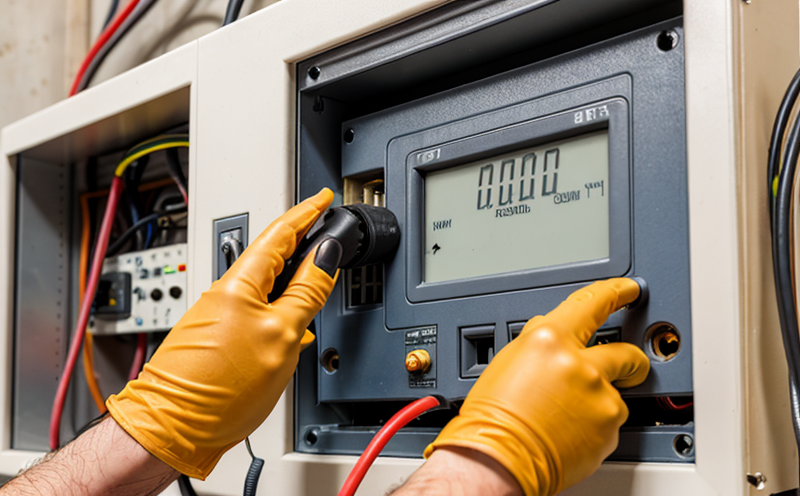IEC 62281 Electrical and Functional Testing of Transported Secondary Lithium Cells
The International Electrotechnical Commission (IEC) Standard IEC 62281 provides a comprehensive framework for the electrical and functional testing of transported secondary lithium cells. This standard is pivotal in ensuring safety, performance, and compliance with international regulations. The testing outlined within this standard applies to both the design phase and during transportation, which are critical stages that influence the overall reliability and safety of these cells.
The primary objective of IEC 62281 is to provide a robust set of procedures for testing lithium cells before they enter transport systems. These tests evaluate various aspects including electrical performance, thermal stability, mechanical integrity, and functional behavior under real-world conditions. The standard aims to identify potential hazards early in the lifecycle of these cells to prevent accidents during transportation.
Lithium cells are widely used across multiple sectors such as automotive, aerospace, consumer electronics, and renewable energy storage solutions. Ensuring their safety and reliability is paramount due to their role in critical applications where failures could have severe consequences. By adhering to the stringent requirements set by IEC 62281, manufacturers can demonstrate compliance with international standards and enhance trust among consumers.
The testing protocol specified in IEC 62281 involves several key components that are essential for assessing the electrical and functional characteristics of transported secondary lithium cells. This includes voltage measurement, internal resistance determination, capacity retention assessment, charge-discharge cycling, and thermal runaway tests. Each component plays a crucial role in evaluating different aspects of cell performance.
During testing, it is important to follow precise procedures to ensure accurate results. Specimen preparation involves selecting representative samples from production batches for testing. Appropriate instrumentation such as precision multimeters, automated battery testers, and specialized thermal analysis equipment are used throughout the process. Compliance with IEC 62281 ensures that all tests meet stringent international standards.
The standard also emphasizes the importance of documentation and reporting. Detailed records of test procedures, parameters, results, and any deviations from expected outcomes must be maintained meticulously. This information is vital for traceability purposes and helps in identifying areas requiring improvement or further investigation.
By implementing IEC 62281 testing, organizations can significantly enhance their product quality and safety. This not only reduces the risk of incidents during transportation but also fosters better relationships with customers by demonstrating commitment to high standards. Furthermore, adherence to this standard provides a competitive edge in meeting regulatory requirements across different markets.
In conclusion, IEC 62281 Electrical and Functional Testing is an indispensable tool for manufacturers aiming to produce safe and reliable transported secondary lithium cells. Its detailed protocols ensure that every aspect of cell performance is thoroughly evaluated, thereby contributing to overall product quality and safety.
Benefits
- Enhances safety by identifying potential hazards early in the lifecycle of lithium cells.
- Ensures compliance with international standards, enhancing trust among consumers.
- Safeguards against accidents during transportation, protecting both people and property.
- Maintains high-quality products through stringent testing procedures.
- Supports better relationships with customers by demonstrating commitment to safety.
- Fosters a competitive edge in meeting regulatory requirements across various markets.





